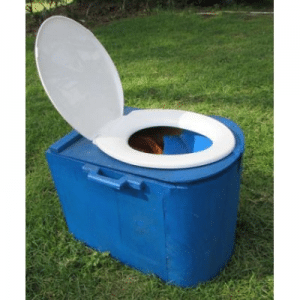
Agriculture
January 22, 2024
Blue Box Toilet and Sanivation Container-Based Sanitation (CBS) Waste Collection Service
Read SolutionImplemented by
Sanivation
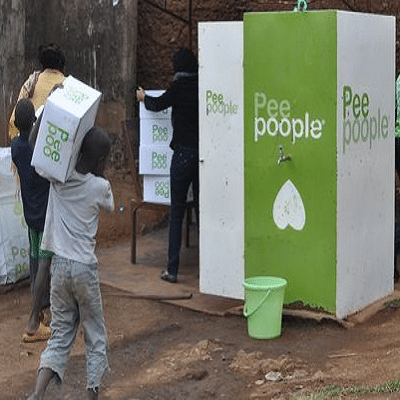
Updated on August 17, 2024
·Created on August 27, 2015
Peepoo is a biodegradable toilet waste bag that converts human waste into fertilizer and the Peepoo Collection System is a waste-management service for urban sanitation.
Peepoo is a single-use, self-sanitizing, biodegradable toilet that converts waste into fertilizer without water. It is sold in low-income areas with poor sanitation, such as Kibera, Kenya, and Goma, DR Congo, and has been used in over 100 schools in Kibera and in emergency responses worldwide.
The Peepoo collection system serves over 20,000 users, operating through local drop-points where service operators collect used Peepoos in exchange for a refund. These are then stored and processed into fertilizer for sale to farmers.
In Kibera, Peepoo is sold by women micro-entrepreneurs for 3 Kenyan Shillings (~$0.03) per unit, with a 1 Shilling refund for returned Peepoos. The project employs five collectors and is assessing users’ willingness to pay, with price support expected until 2020, aiming for long-term affordability and self-sustainability.
Target SDGs
SDG 6: Clean Water and Sanitation
Target Users (Target Impact Group)
Household, Community
Distributors / Implementing Organizations
Peepoople Kenya (a registered NGO in Kenya) is piloting the collection services in Kibera Kenya under the Pee Poople project. The pilot that began in 2010 in partnership with the Chief, Chairman, and Elders of the Silanga Village in Kibera and has been financed by Swedish Vinnova and Dutch Simavi funds for the first three years.Interview with representative Regarding the Peepoo Person Toilet, Peepoople saleswomen and retail kiosks sell Peepoos directly to customers as part of Peepoople Kenya. Additionally, partner NGOs distributing Peepoos include the Red Cross, Oxfam, Caritas, ACF and UN-agencies.
Competitive Landscape
Direct competitors include Sanivation Container-Based Sanitation (CBS) Waste Collection Service and Sanergy Fresh Life Waste Management Service.
Countries
Kenya
Manufacturing/Building Method
This is a collection service based model. The distributed product, the Peepoo bags are mass produced via a high-speed production line Stockholm, Sweden. The capacity of the plant is up to 500,000 Peepoos per day, up to 12 million on a monthly basis.
Intellectural Property Type
Patent
User Provision Model
In local slum communities, users may purchase Peepos through Peepoople micro-entrepreneurs or kiosks. A local partner is responsible for organising the sales of Peepoos in urban slums.
In schools, Peepoos are distributed for free to the children, initially financed by the school’s donors. In emergencies/refugee camps, Peepoos are distributed through governmental organisations or aid organisations
Users can access the service by bringing their used Peepoos to drop-points in their local community or immediate neighborhood, which are staffed by service operators. The drop-points are open daily and are centrally located. In Kibera, a designed van also moves around the slum picking up bales containing used Peepoos.
Distributions to Date Status
The Peepoo collection service is currently operating in the Silanga village in the Kibera slum in Nairobi Kenya and supplies sanitation on a daily basis to 20 000 urban slum dwellers and school children.
Farmers who utilize the fertilizer are receiving it for free from Pee Poople. As of April 2015, 67 farmers are on the waitlist for the fertilizer.
Toilet type
Peepoo Personal Toilet: Accessory
Peepoo Collection System: Container-based service
Evacuation method
Dry
Storage conditions
Container storage
Capacity (L)
Peepoo Personal Toilet: 0.8 L
Peepoo Collection System: Unknown
Time until emptying
Peepoo Personal Toilet: Single-use bags, inactivated after 4 weeks
Peepoo Collection System: Collection frequency at user discretion
Design Specifications
A Peepoo Personal Pack contains 28 Peepoo toilets and one Moyla disposal bag. The outer bag and inner funnel is made of high performance, fully biodegradable plastics that meet EU standard EN 13432. This means that Peepoo disintegrates and that the molecules are broken down into carbondioxide, water and biomass. EN 13432 is the strictest of all standards for evaluating biodegradability and compostability. The biodegradable plastics are made up of a mixture of aliphatic/aromatic co-polyesters (Ecoflex) and polylactic acid (PLA), with small additives of wax and lime. The biomaterial is developed in cooperation with the German company BASF.
Peepoo is designed to optimize the contact between faeces and urea so that the urea dissolves and decomposes rapidly. As the urea breaks down, ammonia starts to inactivate infectious organisms. The carbonates that are produced when urea decomposes help to control the pH at a level that supports the ammonia sanitisation. The Peepoo polymer is developed to contain the ammonia within Peepoo during the time sanitisation occurs. Following decomposition the used Peepoos can be utilised directly in home gardens.
Outer packaging material: OPP and PE Guaranteed shelf-life: 2 years Dimension: 140 x 160 x 40 mm Weight: 340 grams Packing: 20 Peepoo Personal Packs per box Box: 200 x 300 x 400 mm, 7 kg.
Pictorial disposal guidelines for Peepoo bags are provided.
The Peepoo collection system is comprised on a drop-point staffed by service operators that collect used Peepoos and is open daily. Used Peepoos are brought by customers who receive a refund for each used Peepoo that is delivered. The value of the refund is approximately 1/3 of the Peepoo purchase price (~$0.01 USD). The Peepoos are collected in woven polypropylene flexible containers (Big or Jumbo bags) which have a tube liner to ensure no leakage occurs and are held in place by a movable rack. When one bag is filled, it is closed and a new one is opened. Full Big or Jumbo bags are transported daily to a temporary storage area where they are safely kept for 4 weeks until they are fully sanitized and processed into usable fertilizer. Regular control of the internal temperature of the stored bags is performed. When fully sanitized, used Peepoos are brought to a nearby area were they are discharged through the base of the Big or Jumbo bags. The Peepoos are disintegrated mechanically, which releases the sanitized excreta for further processing, such as mixing with sand and clay into fertilized soil that can be sold.
Technical Support
Peepoo Personal Toilet is provided by Peepoo AB, Sweden.Interview with representative
Replacement Components
The Peepoo Personal Toilet, as a single-use product, it does not have replaceable components. For the Peepoo Collection System, Big or Jumbo bags are provided by Peepoople Kenya.
Lifecycle
Peepoo disposable bags have a guaranteed shelf life of 2 years. The service lasts as long as its payment.
Manufacturer Specified Performance Parameters
The urea inside Peepoo inactivates pathogens (harmful bacteria, viruses and parasites) after 4 weeks and Peepoo does not start to break down until the contents have been completely sanitized.
PeePoople Kenya estimates the project will generate approximately 4,000 tonnes of pathogen-free fertilizer.
Vetted Performance Status
The Department of Energy and Technology at the Swedish University of Agricultural Sciences developed the single use, self-sanitising, biodegradable toilet (Peepoo bag) and tested it for smell, degradability and hygiene aspects. It was found that no smell was detectable from a 25 mm thick bag filled with faeces during 24 hours in a 10 square meter room at 30 degrees C. Bags that had been in contact with urea-treated faeces or urine for 2 months in air, compost or water at 24 or 37 degrees C showed little signs of degradation. Pathogen inactivation modelling of the 4 grams of urea present in the bag indicated that appropriate sanitation of fecal material collected was achieved in the bag within 2–4 weeks, after which the bag can be degraded and reused as fertilizer. The used Peepoos offer a safe nutrient for rural or urban farming. Peepoople Kenya was registered and incorporated as an NGO in Kenya. The Peepoople Kenya team is working in a very close relationship with the Silanga Chief, Chairman and Elders of the community in planning and implementing the Peepoo solution.
Safety
Peepoo Personal Toilet meets the WHO requirements for safe sanitation.
Complementary Technical Systems
Peepoo Kiti: Specially designed seat/holder to be used with Peepoo toilet for sitting or squatting
Peepoo Yizi: Privacy tent for use in home or shelter
Simple hand washing equipment is offered free of charge at each drop-point to ensure safe handling of waste.
Academic Research and References
Nordin, A., 2010, Ammonia Sanitisation of Human Excreta Treatment Technology for Production of Fertiliser. Uppsala: Faculty of Natural Resources and Agricultural Sciences Department of Energy and Technology and National Veterinary Institute, A doctoral thesis.
Patel, Deepa, et al., 2011, Excreta disposal in emergencies: Bag and Peepoo trials with internally displaced people in Port-au-Prince. Waterlines 30 (1): 61-77.
Vinnerås, Björn, et al., 2009, Peepoo bag: self-sanitising biodegradable toilet. Water Science and Technology 59(9): 1743-1749.
A study by Department of Energy and Technology, Swedish University of Agricultural Sciences developed the single use, self-sanitizing, biodegradable toilet (Peepoo bag) and tested it for smell, biodegradability and hygiene aspects. Pathogen inactivation modelling of the 4 grams of urea present in the bag indicated that appropriate sanitation of faecal material collected is achieved in the bag within 2– 4 weeks, after which the bag can be degraded and reused as fertilizer.
Compliance with regulations
Peepoo Personal Toilet meet the WHO requirements for safe sanitation. World Health Organization (WHO) has established three requirements for a sanitation system to function for the individual, his or her surroundings, and for society in general. It must: 1. Isolate faeces from the individual. 2. Prevent flies and small animals from coming into contact with faeces, in order to prevent contamination. 3. Inactivate pathogens in faeces before they are returned to nature. The outer bag and inner funnel is made biodegradable plastics that meet EU standard EN 13432. EN 13432 are standards for evaluating biodegradability and compostability.
Peepoo fertilizer meets NEMA microbiological quality guidelines for waste water use in irrigation. Peepoos meet WHO requirements for safe sanitation.
Evaluation methods
Peepoo Personal Toilet: Field trials and lab testing.
The Pee Poople project is a large-scale field study evaluating the willingness-to-pay of users in the targeted areas.
Other Information

Agriculture
January 22, 2024
Implemented by
Sanivation

Agriculture
January 19, 2024
Implemented by
Clean Team Ghana
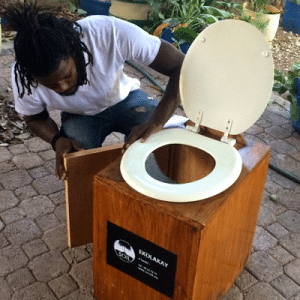
Agriculture
December 20, 2023
Implemented by
SOIL Haiti
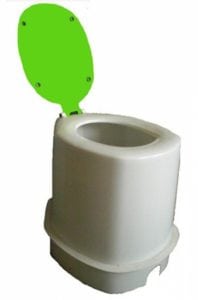
Agriculture
August 14, 2024
Implemented by
Schoon voor water Mozambique
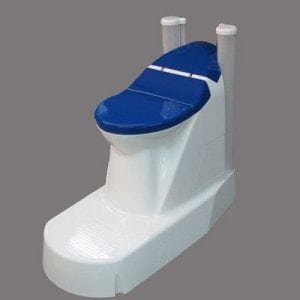
Agriculture
August 8, 2024
Implemented by
Cranfield University
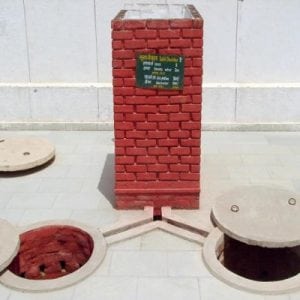
Agriculture
January 6, 2024
Implemented by
Sulabh International
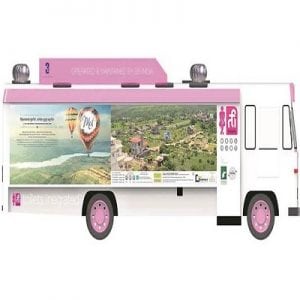
Agriculture
January 2, 2024
Implemented by
3s India

Agriculture
July 2, 2024
Implemented by
Aquatron
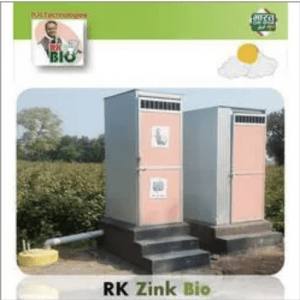
Agriculture
August 13, 2024
Implemented by
R.K. Technologies
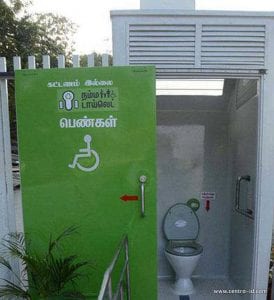
Agriculture
January 6, 2024
Implemented by
Centroid Design
Have thoughts on how we can improve?
Give Us Feedback